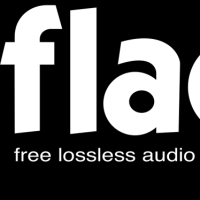FLAC (Free Lossless Audio Codec) files aren’t as popular for playing audio as MP3 files, but FLAC files do offer better audio quality than MP3 files. When audio was first being downloaded from the Internet back in the 1990s, MP3 files were chosen because they offered good quality, but more important, small file sizes. Back when people were connecting to the Internet through dial-up modems, smaller file sizes were preferred. I remember waiting 15 minutes while a 3 MB MP3 file downloaded.
These days, high-speed Internet connections are more the norm, so downloading a 30 MB file can take less than a minute. Because of this, many people have started to switch from downloading MP3 files to FLAC files.

What are FLAC files?
Development of the FLAC file (extension .flac) began in 2000 by Josh Coalson, with version 1 eventually being released on July 20, 2001. The latest version – 1.3.0 – was released on May 26, 2013. The FLAC format is an open format and incorporates royalty-free licensing. The format supports metadata tagging and album cover art.
The FLAC codec uses lossless compression to provided smaller files sizes for songs than traditional CD audio files. The lossless compression does not lose any sound quality when converting a song to a FLAC file. MP3 files, however, use a lossy compression, and achieve their smaller size because some sound quality is lost during the conversion to a MP3 file.
The lossless compression is what appeals to many people – particularly audiophiles. The FLAC format is used to archive audio CDs because the files can be used to recreate the CD bit-for-bit, if needed. The quality will not change.
While the FLAC codec will still amount to a larger file than an MP3 file, FLAC compression can still average about a 30-50% compression rate for a typical audio CD.
Software and Hardware Support
An audio format is only useful if there is support for the format from either software or hardware. While the number of applications or hardware devices that support FLAC files is nowhere near MP3 files, there is a growing list of software and hardware that support FLAC files.
Popular applications such as VLC Media Player (Windows, Mac and Unix) support FLAC files, while Android 3.1 and up natively support the format. For older Android versions, there are apps that can play FLAC files.
For Apple users, iOS and OS X don’t support FLAC files as Apple has chosen to support their own lossless compression format (ALAC). There are apps that support FLAC files that you can use, much like Android.
One of the most popular reasons for creating FLAC files is to archive audio CDs. There are a few different software that can be used to rip CD audio to FLAC files. Exact Audio Copy (EAC) has been since 1998 is used to convert audio CDs to various sound formats, including FLAC. EAC is a popular choice, so there is some good information on using the application for creating FLAC files.
Can FLAC Files Replace MP3 Files?
As the number of applications and hardware device support increase, many people may choose to download and listen to FLAC files instead of MP3 files.
Although, with the lack of support for FLAC from Apple, it could be many years as Apple controls most of the music sharing market through iTunes. If Apple started to offer FLAC support – highly unlikely at this point because they have their own lossless format – then FLAC files could slowly replace MP3 as the standard audio format.
With the higher connection speeds to the Internet and the larger hard drives, the increase in size of FLAC files compared to MP3 files is really a moot point. I am starting to replace many of my MP3 files with FLAC files because I enjoy the better sound quality, especially older MP3 files that were encoded with a lower bitrate.
What do you think about FLAC files replacing MP3 files? Could that be possible, especially if Apple natively supports the format?
